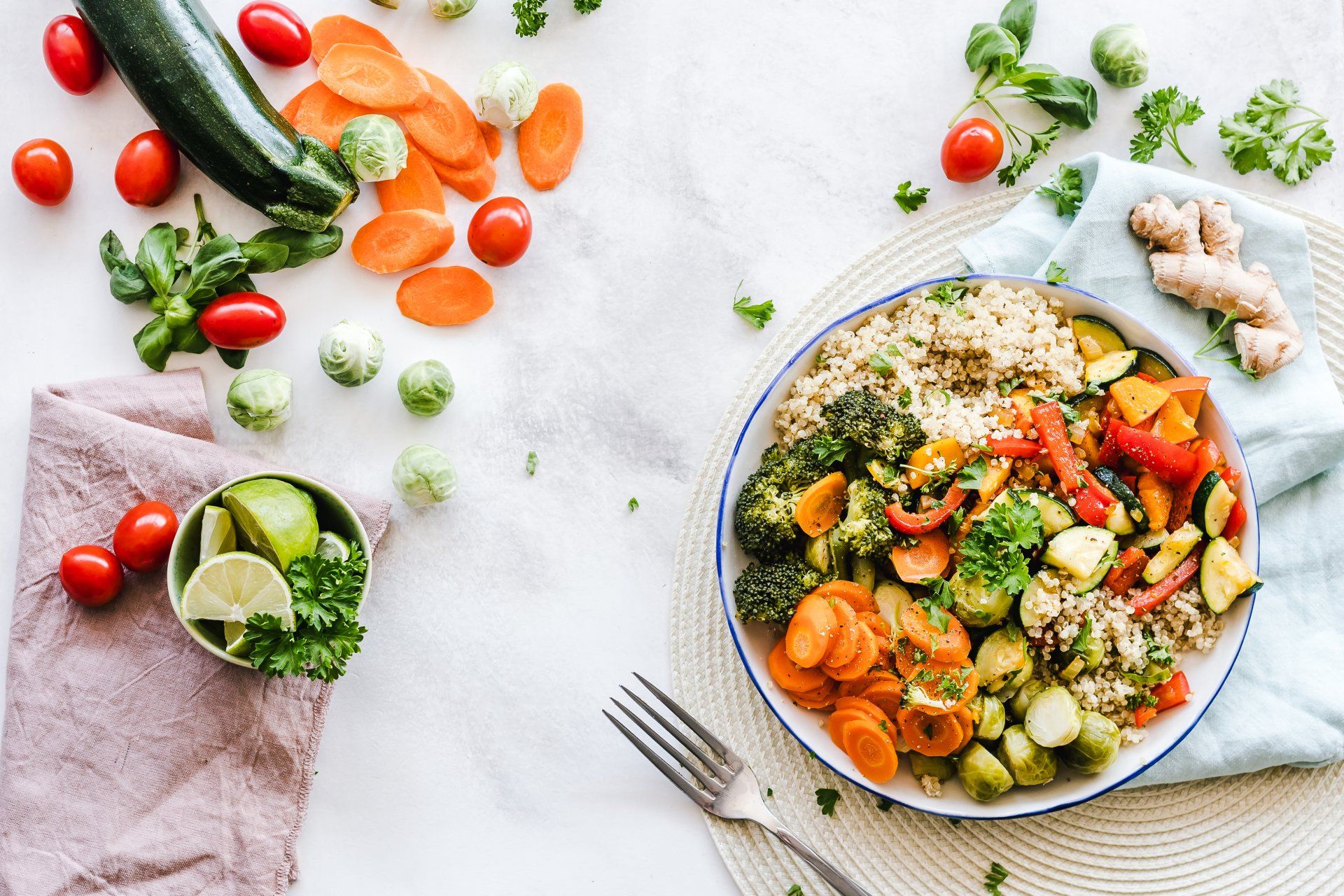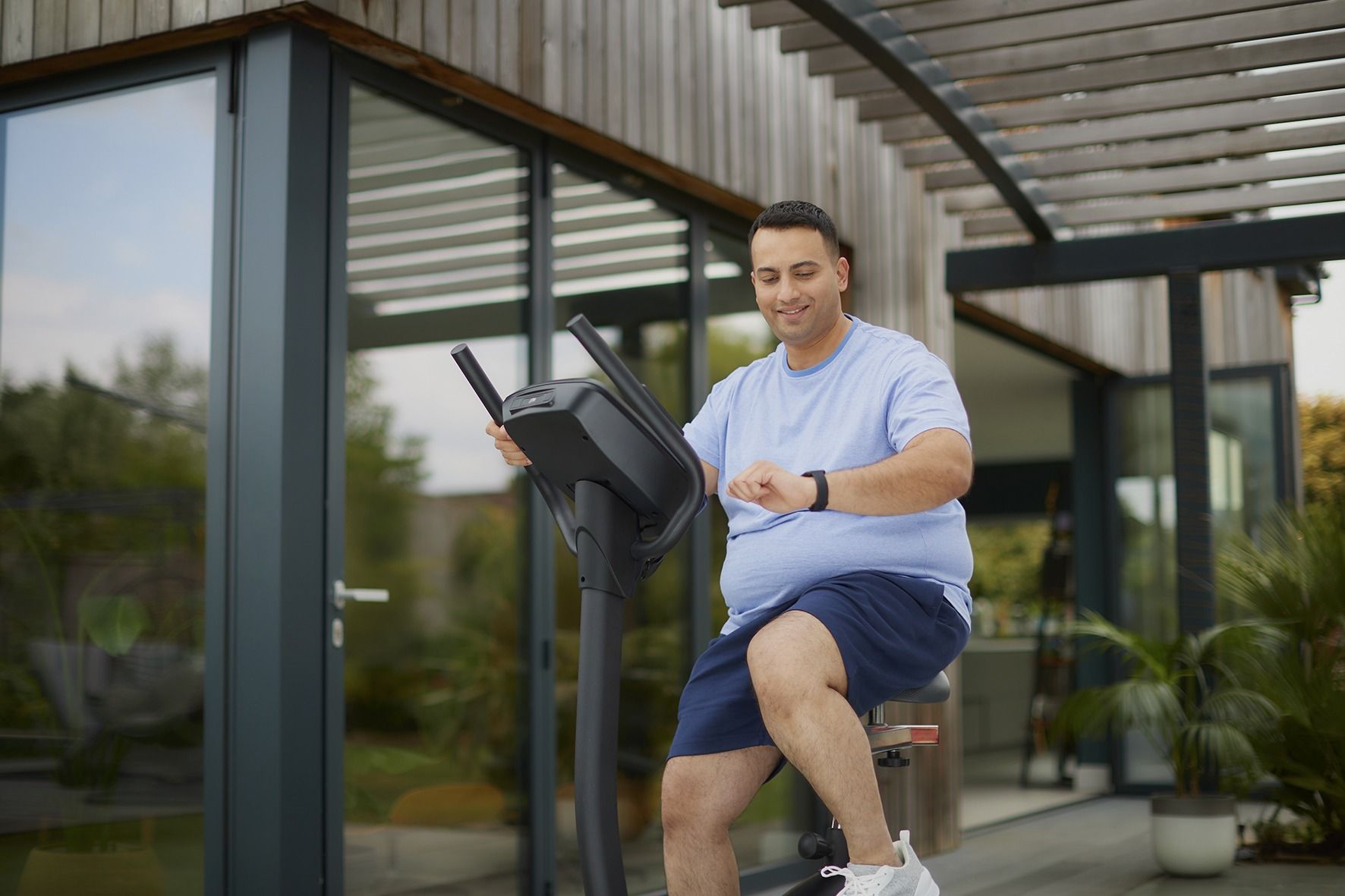Patients
Services
About Us
How Can We Help
Consultants
Get in touch
01702 478885
Tips for staying on track during your weight loss journey
Starting a weight loss journey can feel overwhelming. It demands dedication, self-control, and a carefully crafted strategy. The purpose of this article is to offer you realistic and effective weight loss advice. These suggestions will assist you in staying focused and attaining your weight loss objectives.
We will explore different tactics, such as dietary adjustments, physical activity, and lifestyle modifications. Additionally, we will examine the utilisation of a weight loss balloon, a non-invasive alternative for shedding pounds.

Our wellness tips are designed to assist you in making positive changes to your lifestyle. These changes will not only contribute to weight loss but also enhance your overall well-being.
Whether you're at the beginning of your weight loss journey or have been on this path for some time, this guide will provide valuable insights. Let's embark on this journey together, towards a healthier and happier version of yourself.
Understanding Weight Loss Fundamentals
Weight loss is a process that involves more than just dieting. It's a combination of various factors that work together to help you shed those extra pounds.
One fundamental aspect of weight loss is understanding the balance between calorie intake and expenditure. Simply put, to lose weight, you need to burn more calories than you consume.
- Calorie intake: This refers to the calories you consume through the food and drinks you ingest.
- Calorie expenditure: This refers to the calories you burn through physical activities, including exercise and daily tasks.
Another key factor is the role of regular physical activity in weight loss. Regular exercise not only helps you burn calories but also boosts your metabolism, aiding in weight loss.
Incorporating strength training into your routine can also be beneficial. It helps build muscle, which in turn boosts your metabolism, helping you burn more calories even at rest.
Understanding these weight loss fundamentals can provide a solid foundation for your weight loss journey. It's not just about eating less, but about making informed decisions that support your weight loss goals.
Setting Realistic Weight Loss Goals
Setting realistic weight loss goals is a crucial step in your weight loss journey. It's important to remember that weight loss is a gradual process and expecting instant results can lead to disappointment.
A realistic goal could be losing 1-2 pounds per week. This is considered a healthy and sustainable rate of weight loss. Setting such achievable goals can help keep you motivated and prevent you from getting discouraged.
Remember, the goal is not just to lose weight, but to maintain it in the long run. Therefore, your goals should also include strategies for weight maintenance after you've reached your desired weight.
In conclusion, setting realistic weight loss goals can provide a clear direction for your weight loss journey. It can help you stay focused, motivated, and on track towards achieving your desired weight.
The Role of Diet in Weight Loss
Diet plays a significant role in weight loss. It's not just about eating less, but eating right.
Understanding the balance between calorie intake and expenditure is crucial. To lose weight, you need to create a calorie deficit, which means burning more calories than you consume.
Incorporating whole foods over processed foods can make a big difference. Whole foods are packed with nutrients and fiber, which can keep you feeling full and satisfied.
Fiber, in particular, plays a key role in weight loss. It promotes satiety, aids digestion, and can help control your weight.
Mindful eating is another important aspect of diet. It involves paying attention to what you're eating and enjoying each bite, which can prevent overeating.

Choosing Nutrient-Dense Foods
Choosing nutrient-dense foods is a smart strategy for weight loss. These foods provide more nutrients per calorie, which means they're low in calories but high in vitamins, minerals, and other essential nutrients.
Fruits, vegetables, lean proteins, whole grains, and legumes are examples of nutrient-dense foods. They can provide the nutrients your body needs without adding too many calories.
Including a variety of these foods in your diet can ensure you get a wide range of nutrients. It can also make your meals more enjoyable and satisfying.
Remember, the goal is not to deprive yourself, but to nourish your body with the right foods.
Portion Control and Meal Planning
Portion control is another key aspect of a healthy diet. It's easy to overeat when you're not mindful of portion sizes.
Here are some tips for portion control:
- Use smaller plates and bowls to make your portions look larger.
- Fill half your plate with vegetables, a quarter with lean protein, and a quarter with whole grains.
- Avoid eating straight from the package. Instead, portion out snacks into individual servings.
Meal planning can also help you stay on track. It allows you to plan your meals and snacks ahead of time, which can prevent impulsive eating.
Planning your meals can also make grocery shopping easier and help you avoid unhealthy food choices.
Understanding and Managing Cravings
Dealing with cravings is a common hurdle when it comes to weight loss. Nevertheless, if you can comprehend and effectively manage your cravings, you'll be able to stay on the right path.
Cravings often serve as a signal that your body is lacking a specific nutrient. For instance, a craving for sweets might indicate that your body needs more carbohydrates.
Instead of succumbing to your cravings, try to decipher the message your body is sending you. Then, seek out a healthier alternative that can satisfy your craving without sabotaging your weight loss journey.
Remember, it's perfectly fine to indulge in your favorite foods every now and then. The key is to practice moderation and maintain a sense of balance.
Incorporating Physical Activity into Your Routine
Physical activity is a vital part of any weight loss journey. It helps burn calories, boost metabolism, and improve overall health.
Regular physical activity can take many forms. It doesn't necessarily mean spending hours at the gym.
You can incorporate physical activity into your daily routine in simple ways. For example, taking the stairs instead of the elevator, or parking further away to walk more.
Strength training is a particularly effective form of exercise for weight loss. It helps build muscle, which can increase your resting metabolic rate.
Cardiovascular exercise, such as running or cycling, is also beneficial. It can help burn calories and improve heart health.
Here are some tips for incorporating physical activity into your routine:
- Start slow and gradually increase the intensity and duration of your workouts.
- Try different types of exercises to find what you enjoy.
- Make physical activity a regular part of your schedule.
- Listen to your body and rest when needed.

Finding Exercises You Enjoy
Finding exercises you enjoy is crucial for maintaining a regular exercise routine. If you enjoy what you're doing, you're more likely to stick with it.
Try different types of exercises to find what you like. This could be anything from yoga to dancing to weightlifting.
Don't be afraid to try new things. You might discover a new activity that you love.
Remember, the best exercise for weight loss is the one you enjoy and can stick with.
The Importance of Strength Training
Strength training is a key component of a successful weight loss plan. It helps build muscle, which can boost your metabolism and help you burn more calories.
Strength training exercises can be done with weights, resistance bands, or your own body weight. Examples include squats, lunges, and push-ups.
Incorporating strength training into your routine can also help prevent muscle loss during weight loss. This is important for maintaining a healthy body composition.
Remember, it's important to start slow and gradually increase the intensity of your workouts. Always listen to your body and rest when needed.
The Impact of Sleep and Stress on Weight Loss
Sleep plays a significant role in weight loss. Lack of sleep can disrupt your metabolism and increase your appetite.
When you're sleep-deprived, your body produces more ghrelin, a hormone that stimulates appetite. This can lead to overeating and weight gain.
Stress can also impact your weight loss efforts. Chronic stress can lead to hormonal imbalances that promote weight gain.
Moreover, stress can lead to emotional eating, where you turn to food for comfort. This can derail your weight loss efforts.
Therefore, it's important to prioritise good sleep hygiene and stress management as part of your weight loss journey.
Staying Hydrated: A Key to Weight Loss
Hydration is often overlooked in weight loss plans. However, it plays a crucial role in weight management.
Drinking water can help control your appetite. Often, we mistake thirst for hunger, leading to unnecessary calorie intake.
Water also aids in digestion and nutrient absorption. This can help your body function optimally and support weight loss.
Moreover, staying hydrated can boost your metabolism. This can help you burn more calories throughout the day.
Incorporating adequate hydration into your daily routine is a simple, yet effective weight loss tip.
The Weight Loss Balloon: An Overview
The weight loss balloon offers a non-surgical approach to weight loss. It is a device that is placed in the stomach to restrict food intake.
This procedure is typically recommended for individuals with a BMI of 30 to 40, when traditional methods such as diet and exercise have proven ineffective.
The balloon is inserted through the mouth and filled with saline, creating a sensation of fullness that helps reduce calorie consumption.
It's important to note that the balloon is temporary and is usually removed after six months. It is just one component of a comprehensive weight loss program that also includes dietary and lifestyle changes.
While the weight loss balloon can be an effective tool, it's essential to understand that it is not a magical solution. Achieving sustainable results requires a commitment to adopting a healthier lifestyle.

Risks and Benefits of Weight Loss Balloon
Just like any other procedure, the weight loss balloon comes with its own set of risks and benefits. It's crucial to have a clear understanding of these factors before considering it.
Potential risks associated with the weight loss balloon include nausea, abdominal pain, and the possibility of balloon deflation. In rare cases, early removal may be necessary.
On the flip side, the benefits of the weight loss balloon can be quite significant. Many individuals have experienced substantial weight loss and improvements in their overall health markers.
However, it's important to note that the success of the procedure largely depends on the individual. Adhering to necessary lifestyle changes is crucial for achieving long-term results.
Post-Balloon Weight Management
Once the balloon is removed, it is important to continue with weight management. It is crucial to maintain the healthy habits that were developed during the balloon period.
Regular exercise and a balanced diet remain essential in order to prevent weight regain and promote overall health.
Seeking support from healthcare professionals can be highly beneficial. They can offer guidance and monitor your progress.
It is important to remember that the balloon is a tool, not a cure. Long-term success depends on your commitment to adopting a healthier lifestyle.
Lastly, don't forget to celebrate your achievements. Recognizing your progress can boost motivation and help you stay on track.
Building a Support System for Weight Loss Success
Having a strong network of support can be an effective tool during your weight loss process. It offers motivation, responsibility, and emotional assistance.
This support can be obtained from various sources. Family, friends, healthcare providers, or weight loss communities can all contribute.
Consider sharing your objectives with those close to you. They can provide encouragement and help you stay on track.
Professional guidance can also be advantageous. Nutritionists, personal trainers, or physicians can offer expert advice and monitor your progress.
Remember, each person's journey is unique. What may work for one individual may not work for another. It's crucial to find a support system that aligns with your specific needs and preferences.
Overcoming Common Weight Loss Challenges
Weight loss is often a journey filled with obstacles. Recognising these challenges is the first step towards overcoming them
One common challenge is hitting a weight loss plateau. This is when weight loss slows down or stops altogether. It's a normal part of the process and can be overcome by adjusting your diet or exercise routine.
Another challenge is dealing with cravings. It's important to understand that occasional cravings are normal. Try to find healthier alternatives or use portion control when indulging.
Staying motivated can also be difficult, especially when progress is slow. Remember to celebrate small victories and not just focus on the scale.
Lastly, social situations can often pose a challenge. Plan ahead, make healthy choices, and don't let one indulgence derail your entire plan.
Maintaining Motivation and Celebrating Successes
Maintaining motivation during a weight loss journey can be challenging. It's important to remember why you started and to keep your end goal in mind.
One effective strategy is to set smaller, achievable goals along the way. This can provide a sense of accomplishment and keep you motivated.
Celebrating your successes, no matter how small, is also crucial. This doesn't necessarily mean indulging in unhealthy foods as a reward. Instead, consider rewards like a new workout outfit or a relaxing spa day.
Remember, weight loss is a journey, not a destination. It's about making sustainable changes to your lifestyle that you can maintain in the long run.
Lastly, don't be too hard on yourself. Everyone has setbacks, but what matters is how you bounce back. Stay positive and keep pushing forward.
Conclusion: Embracing a Holistic Approach to Weight Loss
In conclusion, successful weight loss involves more than just diet and exercise. It's about embracing a holistic approach that includes mental, emotional, and physical health.
Remember, everyone's weight loss journey is unique. What works for one person may not work for another. It's important to find what works best for you and to make sustainable changes that you can maintain in the long run.
In the end, the goal isn't just to lose weight, but to lead a healthier and happier life. Stay patient, stay consistent, and most importantly, believe in yourself. You've got this!
If you are struggling on your weight loss journey why not check out our Gastric Balloons HERE









